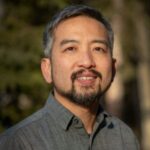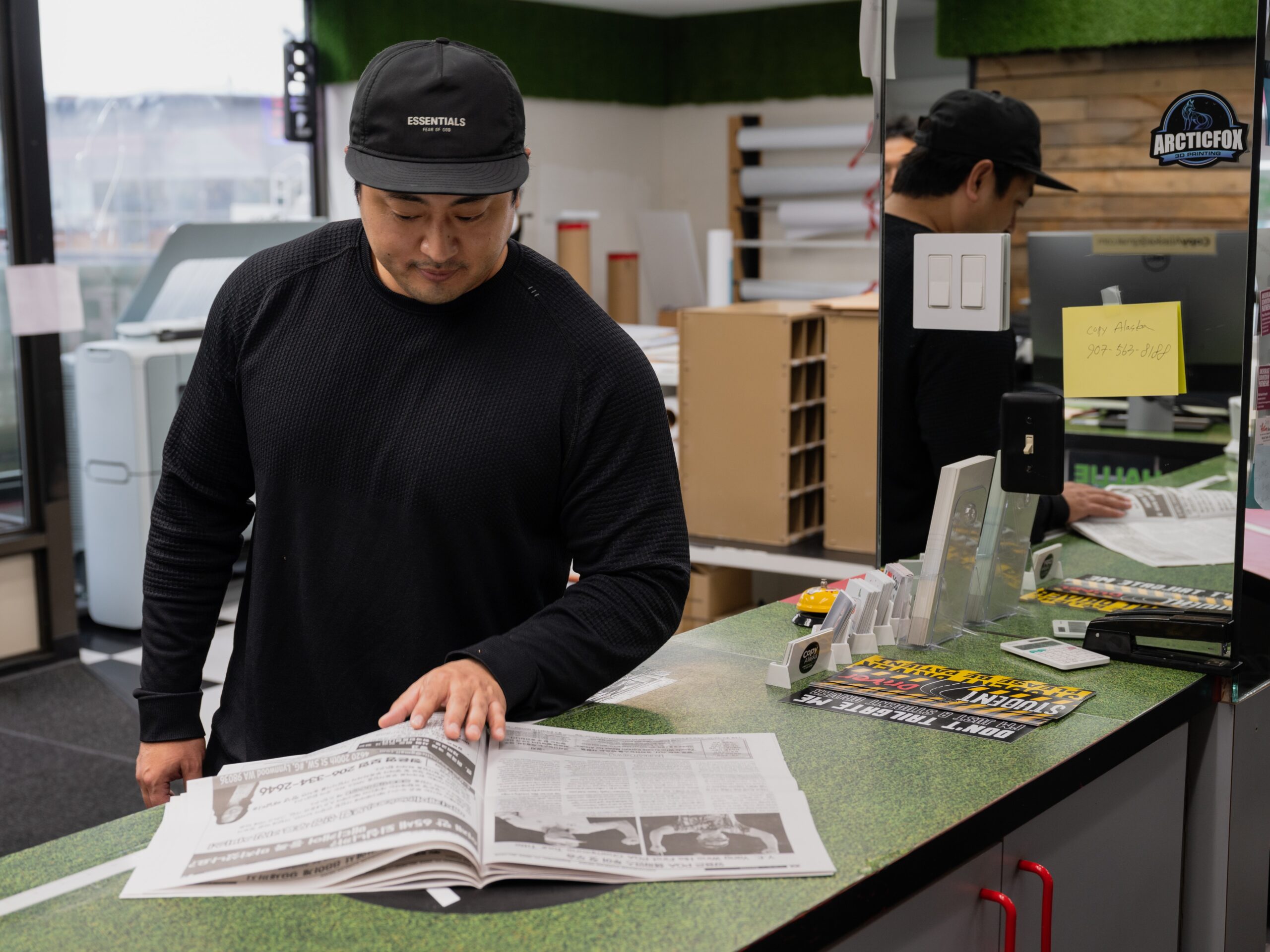
Eugene Cho walks into a downtown business with a small stack of the latest edition of the Anchorage Korean News in hand. He bought the free, weekly newspaper in January.
“안녕하세요” or “Annyeonghaseyo,” he says, greeting Benjamin Kim in Korean.
Kim owns the print shop Copy Alaska. He also sells point-of-sale systems that he markets to other Korean business owners in Cho’s newspaper. The shop is one of nearly 100 distribution points for the paper around the city.
The outlook for the print news business is bleak, nationally and in Alaska. This year, the Anchorage Daily News went from printing hardcopies six days a week to two – even after winning American journalism’s highest honor in 2020. Its newsroom employees are forming a union to negotiate for better working conditions.
Yet, Anchorage, which the U.S. Census Bureau estimates has a Korean population of roughly 4,400 people, continues to support two weekly Korean language newspapers that are both dense with paid advertising. Both papers have gotten new blood this year.
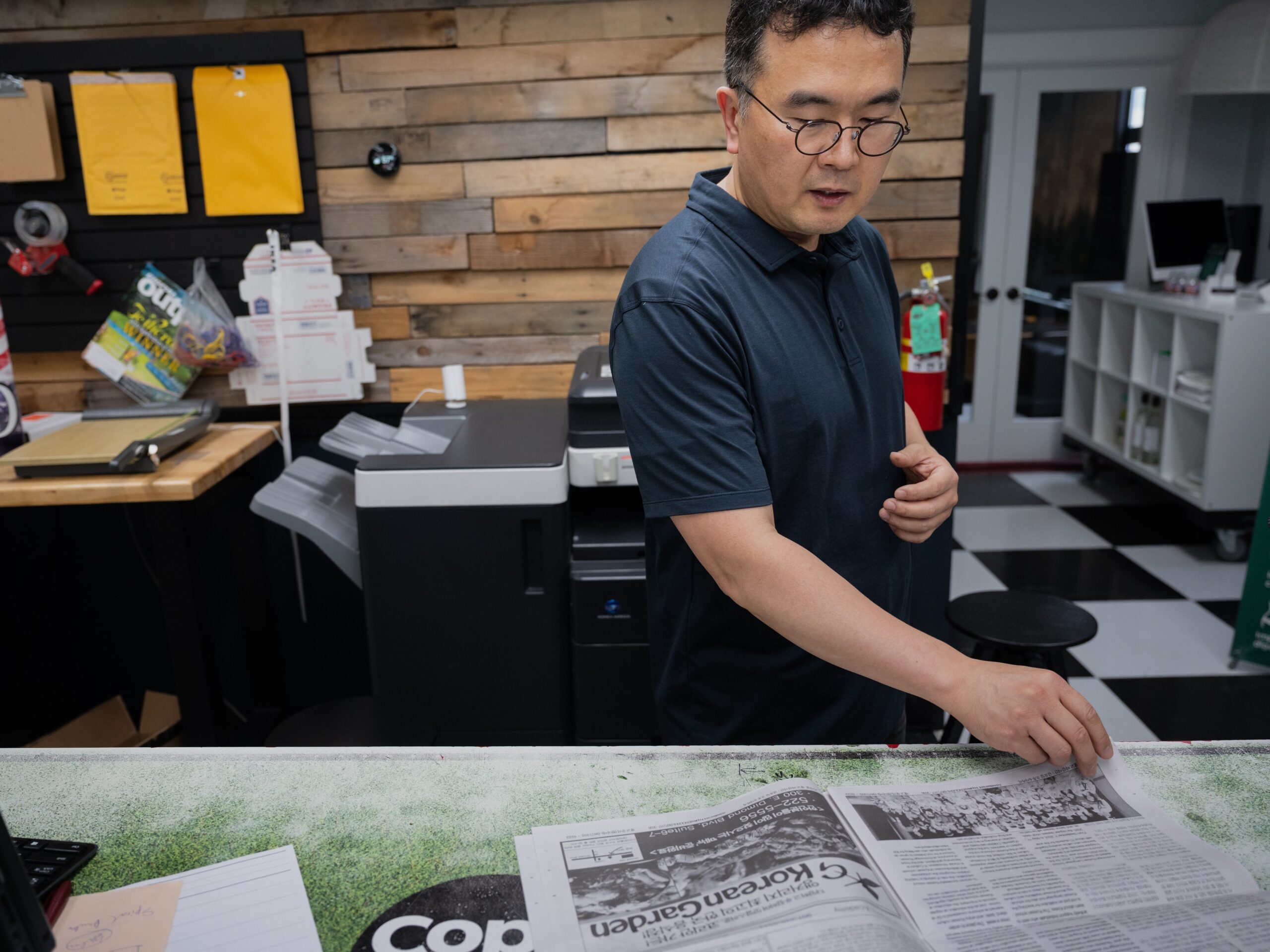
Kim, who immigrated from South Korea to the United States 17 years ago, said Cho is a good bridge between the local Korean community and the community at large. “Bridging cultures” is part of the paper’s motto, and it comes up a lot.
Cho bought the newspaper through a connection at a Korean cultural nonprofit that he’s on the board of. His professional background is in digital marketing, so reporting and putting together 700 copies a week of a print newspaper are new to him.
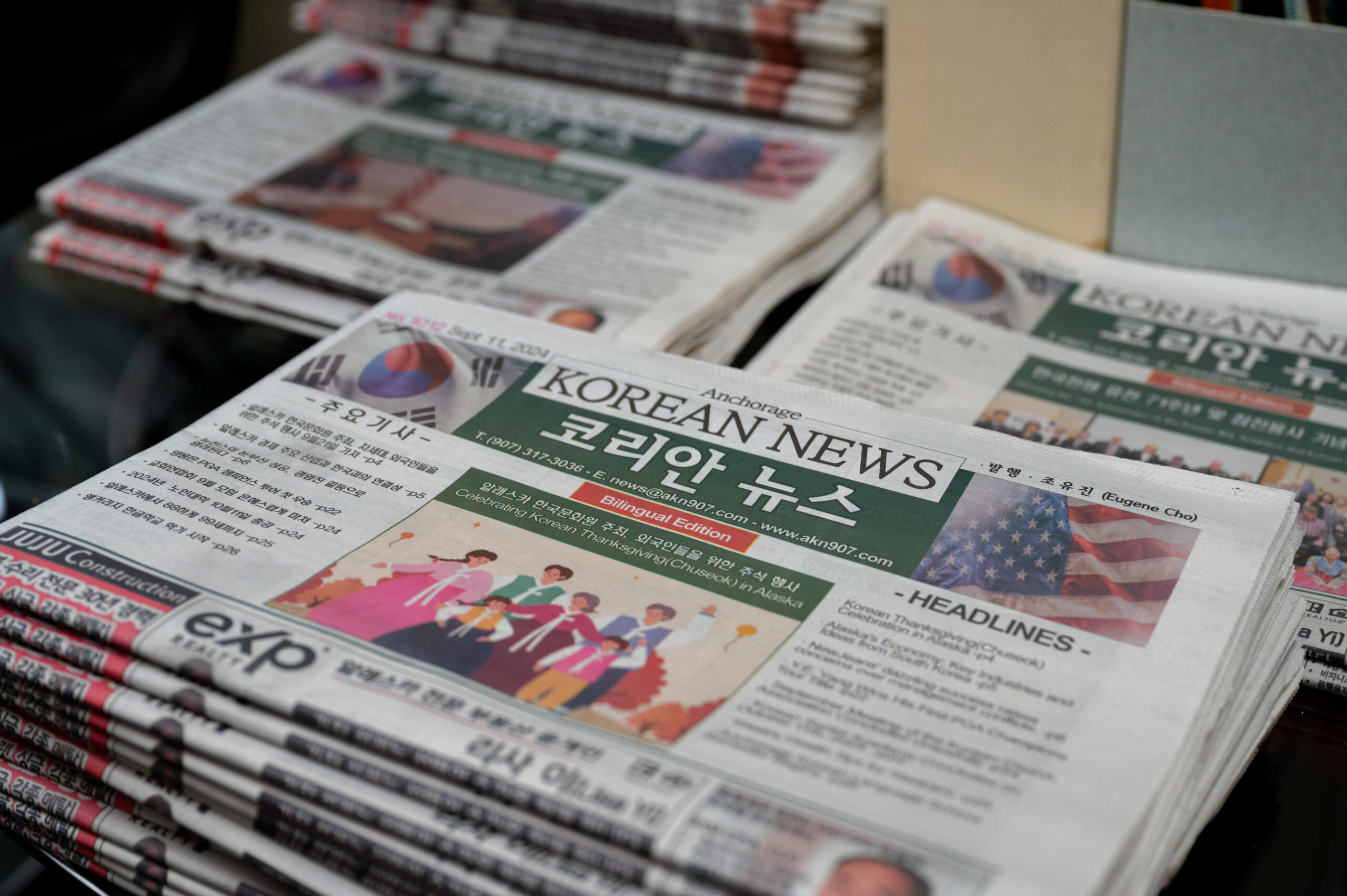
There was no grand plan when he bought the paper, he said. But he thinks it’s an important way to tie Anchorage’s Korean community together.
“‘Cause, we’re kind of in this phase where we’ve got younger Korean Americans who are the future of the Korean community,” he said. “But we were born here, so we don’t really speak Korean, right?”
He’s in his late 30s now, and does speak some Korean. One of the first changes he made when he took over the paper was to make it bilingual, to help bridge that generational and language gap.
That’s one thing that distinguishes the Anchorage Korean News from the Alaskan Korean Community News, the city’s other free, Korean-langauge weekly. That paper is almost entirely in Korean. Coincidentally, Hye Ran Hunziker, who also goes by Helen, started as that paper’s do-it-all managing editor earlier this year.
Cho enlists a combination of AI and someone who’s fluent to help translate and write in Korean.
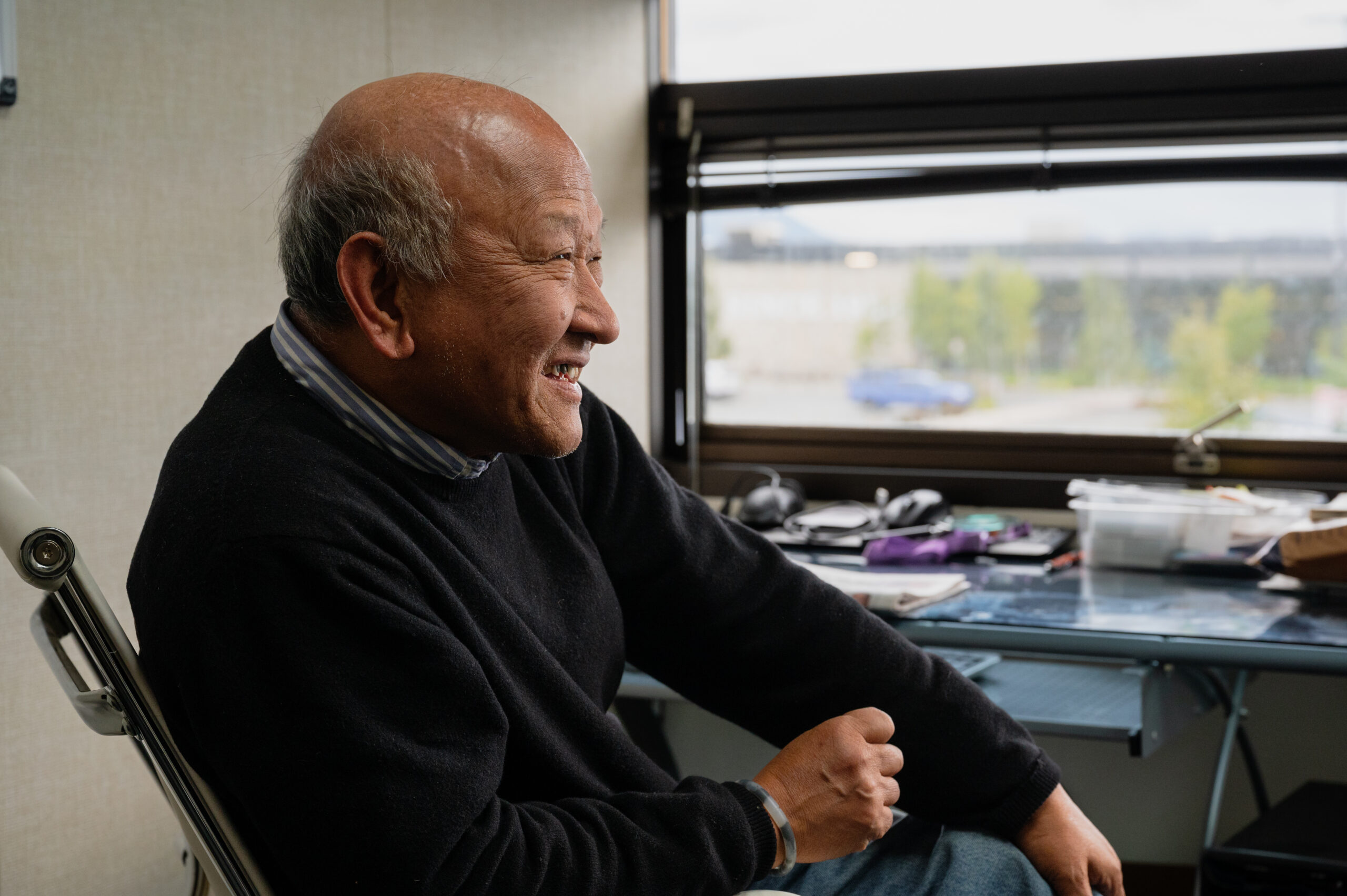
“We either need to learn Korean to help, you know, facilitate and support Koreans here,” he said, “or it’s just going to be an English-speaking Korean community.”
That intersectional gap also carries over to media habits. He said he has a different pitch for a first generation Korean immigrant to buy advertising with him, versus someone American-born.
“You talk to them about online advertising, and it’s just like you can’t – you can’t connect, because they have no idea what that is,” he said.
One of his goals is to build up the newspaper’s website and presence on other online platforms. That’s where his expertise and passion are.
“I’ve always been intrigued by, just like, the ability to connect with people online,” he said. “You know, in Alaska, we’re kind of remote here, and I grew up playing a lot of video games, so it was nice to – you could connect with people anywhere, you know, and build relationships.
Lately, he’s been working on a video interview series with Korean War veterans in Alaska. He said the few that are still alive are mostly in their 90s.
“I hope that by capturing these stories, Koreans can see what they experienced,” Cho said. “But also, younger Korean Americans who know nothing about the Korean War, right? who may have not ever even visited Korea, can see, like, firsthand, this is a person who fought in the Korean War, and here’s what they lived through.”
Cho’s own story begins in the late 1980s, after his parents immigrated to Alaska.
“My dad was a janitor at Romig (Middle School) and West High,” he said. “My mom worked for Sky Chefs, preparing food for planes. And then, you know, they just saved as much money as possible. In the 90s, my dad started a travel agency.”
He said he grew up with a split cultural identity, which is common with the children of immigrants: all Korean at home, and wanting to fit in and be more mainstream American everywhere else.
His dad’s travel agency, which does its business in Korean, is still going. Cho’s office for the newspaper and his digital advertising business is inside the agency’s suite in Midtown.
After finishing up at Copy Alaska, Cho ticks another delivery of the Anchorage Korean News off his list for the week. It can be an exhausting grind and isn’t a big moneymaker, he said.
But he’s eager to make it work. He has lots of questions about journalism.
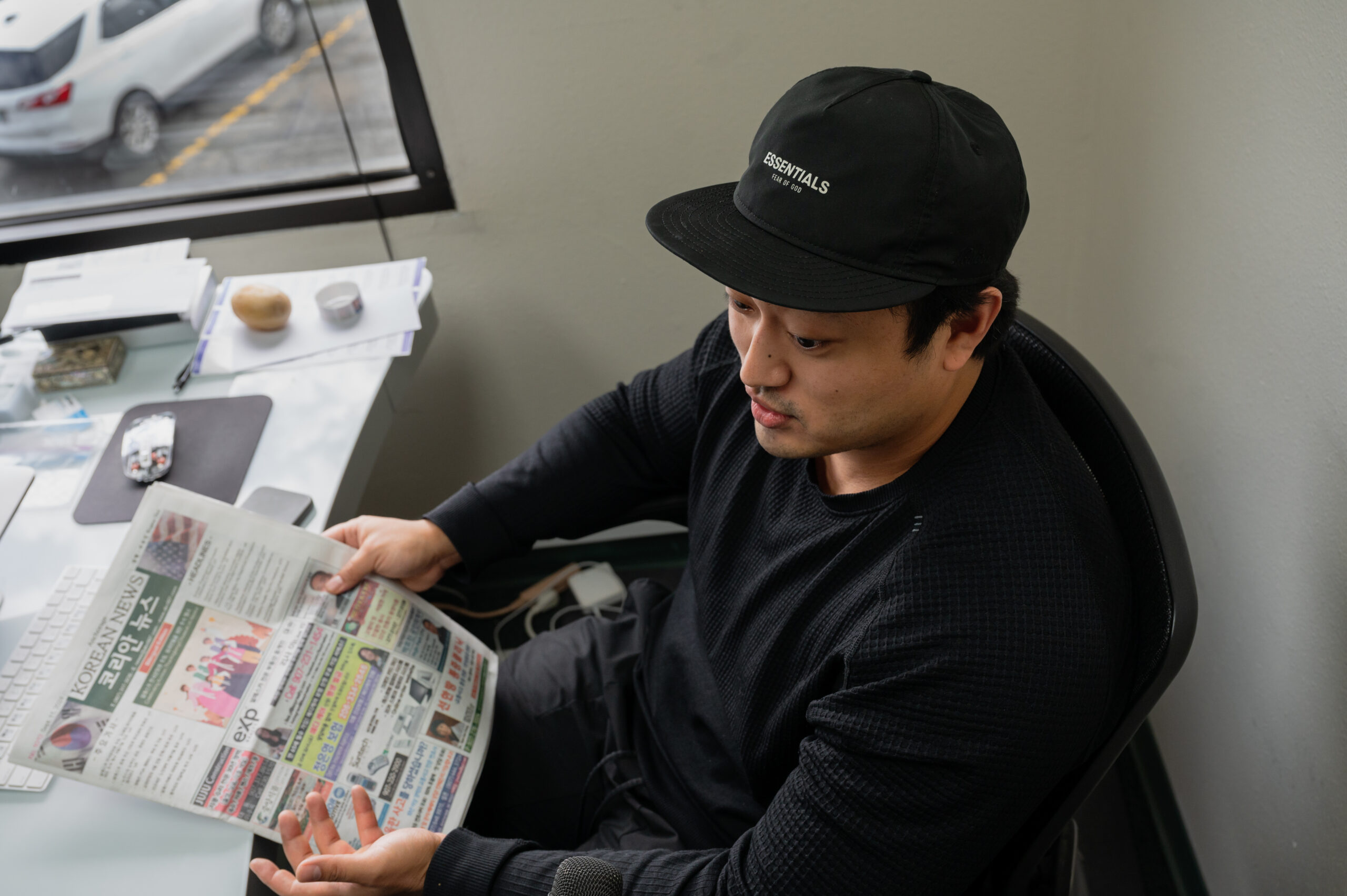
“Has AI impacted your work at all?” he asks. “What kind of stories do Alaskans love the most? … How do you know when a news article’s doing well?”
He’s still learning, and excited about where the paper’s going.
Jeremy Hsieh covers Anchorage with an emphasis on housing, homelessness, infrastructure and development. Reach him atjhsieh@alaskapublic.orgor 907-550-8428. Read more about Jeremyhere.

